 Petzlover
Petzlover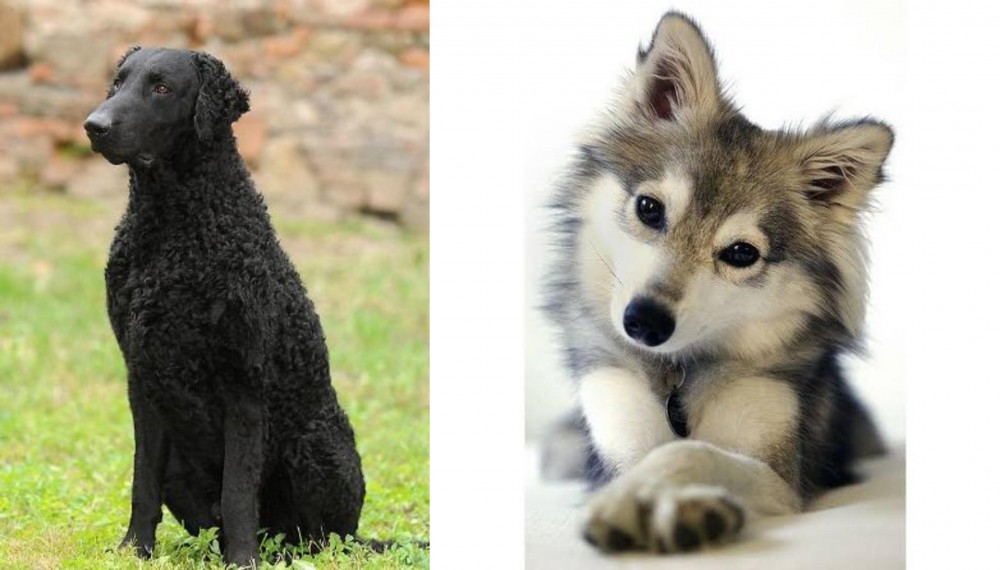 Curly Coated Retriever is originated from United Kingdom but Miniature Siberian Husky is originated from United States. Curly Coated Retriever may grow 30 cm / 12 inches higher than Miniature Siberian Husky. Curly Coated Retriever may weigh 29 kg / 64 pounds more than Miniature Siberian Husky. Both Curly Coated Retriever and Miniature Siberian Husky has same life span. Curly Coated Retriever may have more litter size than Miniature Siberian Husky. Curly Coated Retriever requires Low Maintenance. But Miniature Siberian Husky requires Moderate Maintenance
Curly Coated Retriever is originated from United Kingdom but Miniature Siberian Husky is originated from United States. Curly Coated Retriever may grow 30 cm / 12 inches higher than Miniature Siberian Husky. Curly Coated Retriever may weigh 29 kg / 64 pounds more than Miniature Siberian Husky. Both Curly Coated Retriever and Miniature Siberian Husky has same life span. Curly Coated Retriever may have more litter size than Miniature Siberian Husky. Curly Coated Retriever requires Low Maintenance. But Miniature Siberian Husky requires Moderate Maintenance
 There isn’t much on the origin of the Curly-Coated Retriever and his history hasn’t been well documented.
There isn’t much on the origin of the Curly-Coated Retriever and his history hasn’t been well documented.
The dog originated some time ago in the early 19th century, with some believing that the dog was in England during the late 1700s already.
It is thought that this dog, which is identical to the Labrador but with a tight, curly coat, descended from the Old English Water Dog, the Irish Water Spaniel and the smaller Newfoundland. This mix was later crossed with the Poodle and this is where the curls come into the picture.
The Curly-Coated Retriever gained substantial recognition in England during the mid-1800s and exported to the United States in 1907. The dog was also later exported to Australia and New Zealand and has been recognized by the American Kennel Club in 1924.
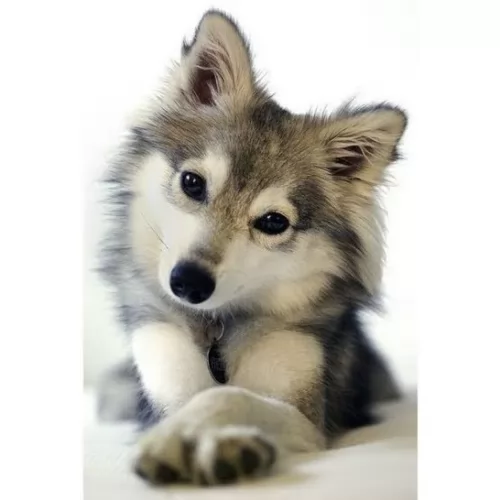 Miniature Siberian Huskies – also known as mini huskies – are your regular Siberian husky bred to be that much smaller than what the breed standard dictates.
Miniature Siberian Huskies – also known as mini huskies – are your regular Siberian husky bred to be that much smaller than what the breed standard dictates.
They’re sought after by those who love the regular sized Siberian Husky but who find the larger dog too large and boisterous. They come complete with the looks and the temperament of the Siberian Husky but they are smaller.
The origins of these gorgeous Mini huskies is conflicting though as some believe they originated in the USA. The name of Bree Normandin is bandied about when talking of the breed’s origin while other refer to Linda S. Spurlin from Alaska. She became interested in them when her full-sized husky became pregnant by a small dog.
Spurlin used Siberian and Alaskan Huskies as well as small Schipperkes and American Eskimo Dogs to bring about the mini version. They’ve got the same pedigree as the Siberian Husky, but it has been selectively bred for its smaller size, also coming from the Spitz family of dogs.
The Miniature Husky is genetically the same as the larger Siberian Husky and the AKC doesn’t recognize it as a separate breed, but sees it as a different size variation of the working-group Siberian Husky.
 The Curly Coated Retriever is a medium sized dog standing at about 58–69cm and weighing anything between 25 – 40kg. The dog, mainly black or chocolate brown, is active and muscled and was used for hunting and retrieving waterfowl.
The Curly Coated Retriever is a medium sized dog standing at about 58–69cm and weighing anything between 25 – 40kg. The dog, mainly black or chocolate brown, is active and muscled and was used for hunting and retrieving waterfowl.
The coat has small, tight curls over the body except for the face and the legs. He has floppy ears and they eyes of the black dog are brown while in the liver-colored dogs, the eyes are amber or gold.
The tail is long. He has a wedge shaped head, and its the fact that the face is more long than wide which makes him easily distinguishable from other retriever breeds. Of course, it is the curly coat which is the dog’s most distinguishing feature.
The Curly Coated Retriever has been used as a gun dog, and today, like most retrievers, they make superb pets and are a lively, social and fun-loving breed. He becomes loyal and devoted to his human family members, making a splendid pet, but then he must be exercised.
Have him trained and socialized and he becomes an obedient, relaxed dog, eager to please. He is intelligent and self-confident and gets on well with children in the home as well as with other pets.
He fits in easily to city and country life, but if he could have large grounds to run, play and swim, which he loves, he would be at his happiest.
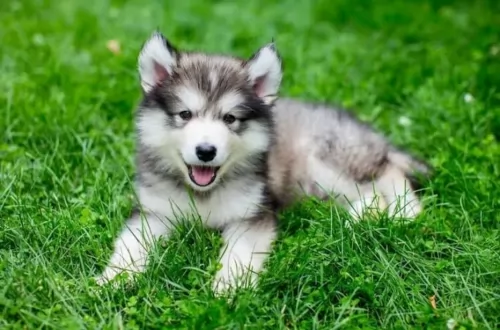 Known also as the Alaskan Klee Klai,the Miniature Siberian Husky stands at 33-39cm in height and weighs between 8 - 11kg.
Known also as the Alaskan Klee Klai,the Miniature Siberian Husky stands at 33-39cm in height and weighs between 8 - 11kg.
These mini huskies are like the larger huskies and can also come in a range of color variations such as grey and white, black and white or red and white for instance. In typical Spitz dog fashion they have the erect ears and long bushy tail. A striking feature of these dogs is the beautiful eyes – they can be brown but also a mesmerising blue.
This Miniature Siberian Husky is an intelligent dog and you’re not going to have any trouble with him teaching him some basic commands such as sit, lie-down and stay.
You need to know that these dogs aren’t going to be content lying around all day and that they want to be kept busy almost around the clock. They have always been working dogs so he will need plenty of mental – and physical exercise to keep him content. A bored, frustrated Mini Husky will just develop problem behavior through no fault of his own. People who buy high energy dogs have a responsibility towards them to keep them busy and well exercised.
These dogs are similar to their genetic ancestor, the wolf, and instead of barking, you may find him trying to communicate with a howl. One thing is sure, they make great family pets, and their gentle nature allows them to get on well with children and also not to show aggression with other dogs. They’re loyal, outgoing and charming.
 Curly Coated Retrievers are such fun dogs, full of personality, robust and active. He makes such a wonderful pet and is loving, loyal and protective. He is brave, courageous, independent and confident as well. He gets on well with children and loves to be part of all their games. He is capable of getting on well with other animals in the home.
Curly Coated Retrievers are such fun dogs, full of personality, robust and active. He makes such a wonderful pet and is loving, loyal and protective. He is brave, courageous, independent and confident as well. He gets on well with children and loves to be part of all their games. He is capable of getting on well with other animals in the home.
He is an active dog and won’t fit in well with those who like to sit around all day. He wants to be active, and then loves to settle down with his human family at night. He is an excellent all-rounder and makes a loving, loyal pet.
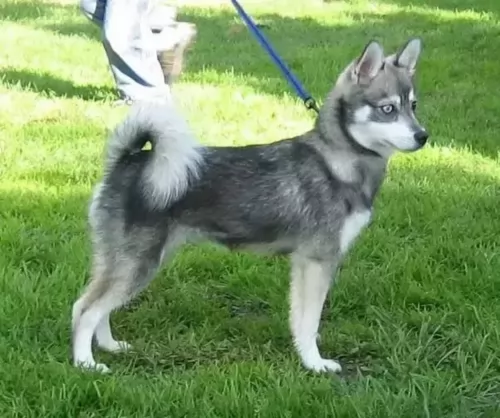 Your cuddly Mini Siberian Husky is such an intelligent dog, active and social and guaranteed to make you a splendid pet.
Your cuddly Mini Siberian Husky is such an intelligent dog, active and social and guaranteed to make you a splendid pet.
Being somewhat wary and aloof with strangers, they also make good watchdogs. They do well with children who have been taught to be kind and gentle with animals.
With good care your dog can reach up to 15 years of age, providing you with many years of superb friendship.
 With good care, the average life expectancy of the Curly-Coated Retriever can reach between 10 and 12 years. However, there are some health concerns that your dog may have to contend with and which are common in most other dog breeds too.
With good care, the average life expectancy of the Curly-Coated Retriever can reach between 10 and 12 years. However, there are some health concerns that your dog may have to contend with and which are common in most other dog breeds too.
Apart from hip dysplasia, bloat, dental decay and eye diseases such as cataracts, ear infections are a common canine health problem, particular when your dog has floppy ears and loves the water.
Ear infections can also be caused because of bacteria, ear mites, allergies and hair growth in the ear canal. Your pet will shake his head, maybe off balance and be scratching his ear. You might notice his ears are red and oozing. Get him to the vet immediately.
When you brush your dog, check for fleas and ticks. Worms too, can make your dog ill, and can actually be the death of a puppy. Worms can cause weight loss, a rough, dull coat and a generally run-down appearance. Your vet will be able to guide you as to what medications are available.
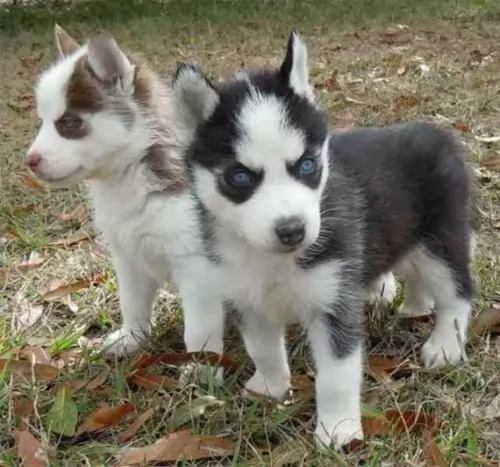 Your Miniature Siberian Husky is a healthy dog and you won’t have to spend too much money on him at the vet. However, just like with any other dog, he can battle with some of the common dog diseases -
Your Miniature Siberian Husky is a healthy dog and you won’t have to spend too much money on him at the vet. However, just like with any other dog, he can battle with some of the common dog diseases -
This eye problem affects about 10% of all Siberian Huskies and its not limited to old dogs. Juvenile cataracts can affect young dogs too. Luckily the problem isn’t painful for the dog.
Skin problems can be a concern for the Mini Siberian Husky, especially as one is used to seeing these dogs with thick coats. Follicular dysplasia is a genetic condition that causes patchy hair loss as well as a scaly, infected skin.
Check out that your dog is receiving nutritious food with vitamins and minerals as a zinc deficiency for instance can cause hair loss as well as skin problems.
 The Curly Coated Retriever is a single-coated dog breed and this makes him a low maintenance dog. He doesn’t shed much and a good brush twice a week will keep the curly coat in good condition. There are some dog owners that trim the feathering around the legs, feet, tail and belly.
The Curly Coated Retriever is a single-coated dog breed and this makes him a low maintenance dog. He doesn’t shed much and a good brush twice a week will keep the curly coat in good condition. There are some dog owners that trim the feathering around the legs, feet, tail and belly.
The Curly Coated Retriever is an attractively low maintenance breed. Therefore he doesn’t require any special diet. He does well on a top quality manufactured dog food where protein is listed at the top.
These dogs are inclined to put on weight easily so you want to be sure to follow the directions on the packaging and not overfeed him. With his kibble, sometimes add in some cooked brown rice, vegetables and chicken.
Raw meat can be expensive but if you can, try and include it into your pet’s diet to avoid nasty skin rashes and allergies. Always make sure that cool, fresh water is available to your dog and make sure the food and water bowls are regularly washed.
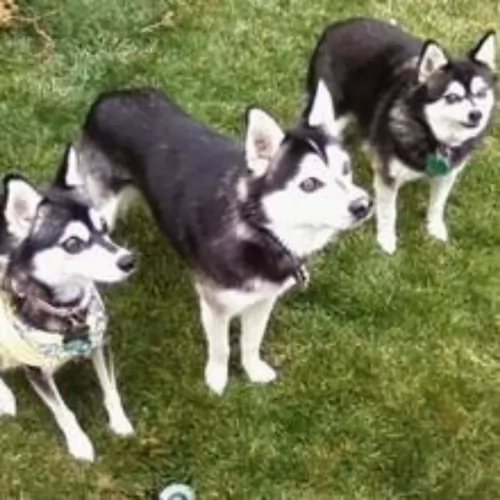 The Miniature Husky is an active and energetic breed that is going to require a lot of exercise. He is able to adapt to life in the city or the countryside but wherever you keep him as a pet, he will require regular daily exercise.
The Miniature Husky is an active and energetic breed that is going to require a lot of exercise. He is able to adapt to life in the city or the countryside but wherever you keep him as a pet, he will require regular daily exercise.
These dogs are used to cold climates so make sure your Mini Siberian Husky doesn’t overheat. Make sure that when he’s outdoors, there is shade for him and a water bowl. You’ll be doing him a real favor if you provide him with a small paddling pool to dip into on a hot day.
These are clean, odorless dogs that actually require little human help to be groomed. You can give your dog a good brush twice a week.
Mini Siberian Huskies, like the larger breed, have a high metabolism, so small amounts of highly nutritious food will do well with them. If you intend feeding your one commercially manufactured food, make sure its the high quality food that comes with plenty of minerals and vitamins. Try and avoid the low quality brands that come packed with unhealthy preservatives and colorants.
Dogs do well on simple, nutritious diets, so some boiled chicken, brown rice and raw and cooked vegetables such as carrots, potatoes and spinach added into the dry kibble from time to time will do him wonders.
Also try and include some raw meat into the kibble from time to time. That's it, as simple as that- no exotic, spicy foods and foods which we humans eat such as nuts, chips and chocolate – all can be toxic for your pet and just give him an upset stomach.
Make sure fresh, cool water is constantly available.